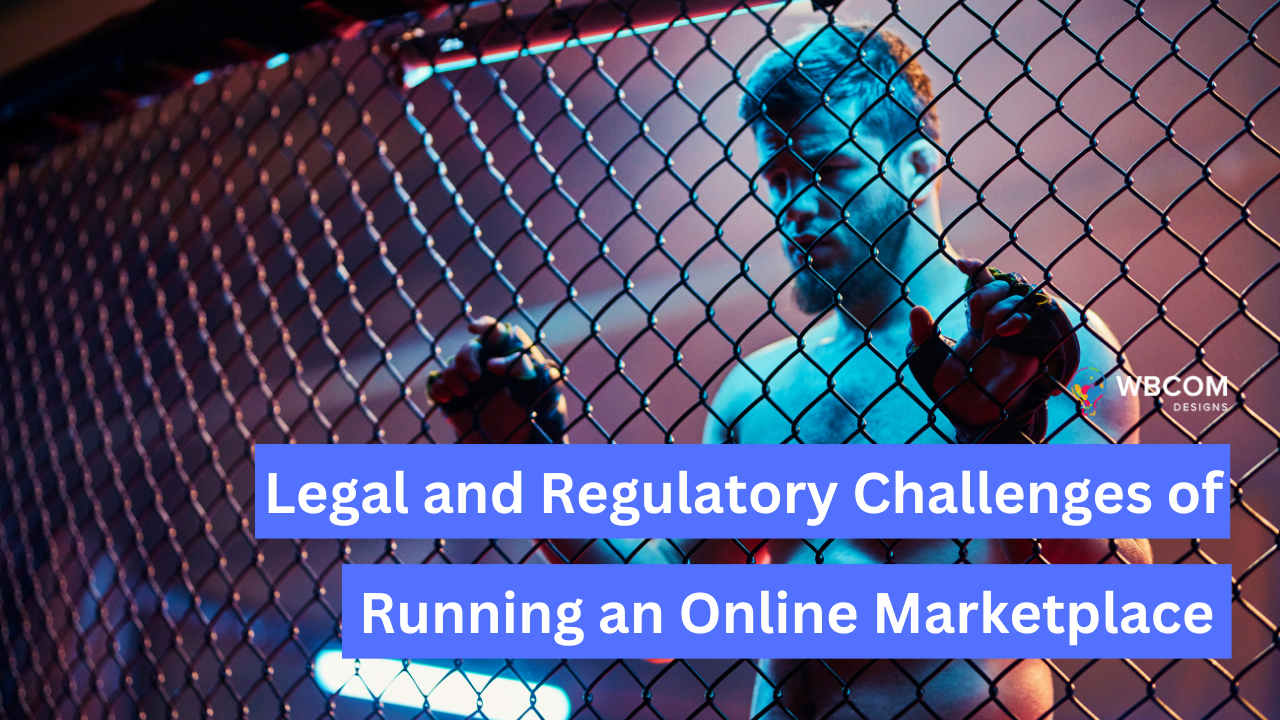In a world where e-commerce is rapidly taking over traditional brick-and-mortar stores, online marketplaces have become a game-changer. From Amazon to Etsy to Airbnb, online marketplaces have disrupted entire industries, offering consumers easy access to a wide range of products and services. However, with great power comes great responsibility, and the legal and regulatory challenges that come with running an online marketplace can be daunting. As a seller or buyer, you might not realize the complexity of the legal and regulatory landscape that online marketplaces operate in. In this blog post, we’ll explore some of the critical legal and regulatory challenges that online marketplaces face and why they matter to you. Read on to discover what makes the online marketplace industry fascinating yet challenging.
Table of Contents
ToggleIntellectual Property and Copyright Infringement
Intellectual property laws and copyright infringement are major challenges for online marketplaces. Intellectual property refers to legal rights that arise from creative works and ideas, such as patents, trademarks, and copyrights. Intellectual property laws can be complex and challenging in online marketplaces. Copyright infringement is a common issue that can occur when users upload or share copyrighted content without permission or when third-party sellers list infringing products.
Marketplace operators are legally responsible for preventing infringing content from being uploaded or shared on their platforms and responding promptly to takedown notices from copyright owners. The Digital Millennium Copyright Act (DMCA) provides a framework for online service providers, including marketplace operators, to address copyright infringement issues. However, marketplace operators may still face legal challenges and reputational harm if their platform is perceived as facilitating or profiting from copyright infringement. Therefore, operators need to implement effective intellectual property policies and procedures and work closely with legal counsel to navigate these complex legal issues.
Consumer Protection and Product Liability
As an online marketplace, it is important to be aware of the legal and regulatory challenges that come with offering goods and services to consumers. Two major areas that should be considered are consumer protection and product liability.
Consumer protection laws are designed to protect customers from unfair or deceptive business practices. These laws vary by jurisdiction, but generally require businesses to be transparent about their products, services, and pricing. Marketplace operators must ensure that their platforms comply with all applicable consumer protection laws, such as the Federal Trade Commission Act in the United States.
Product liability is another key legal consideration for online marketplaces. Generally speaking, if a product purchased from an online marketplace is found to be defective or dangerous, the seller (not the marketplace operator) may be held liable for any resulting injuries or losses . However, if the marketplace operator is found to have been negligent in some way—such as failing to vet sellers or take action against a seller who was engaging in illegal activity—it could face legal liability as well. It is therefore important for marketplace operators to have thorough policies and procedures in place for product vetting and dispute resolution.
Taxation and Compliance
Online marketplaces are becoming increasingly popular ways for individuals and businesses to transact goods or services. While the appeal of online marketplaces is obvious, with potentially lower operational costs and a wider reach of potential customers, marketplace owners must be aware of the legal and regulatory challenges associated with running an online marketplace. Taxation and compliance are two key considerations for marketplace owners.
First, proper taxation must be taken into account. Depending on the jurisdiction, online marketplaces may need to collect taxes on behalf of sellers or buyers, remit taxes to government entities, and provide customers with necessary documentation (e.g., receipts). Failure to properly collect and remit taxes could result in steep fines or other penalties.
Second, marketplace owners must be aware of their responsibilities under applicable laws and regulations, such as data protection, privacy, and consumer protection laws. Marketplace owners must ensure that they are meeting all legal requirements, not just in the jurisdiction where they are located, but also in each jurisdiction their marketplace operates in. Additionally, marketplace operators may need to obtain proper licenses or permits before engaging in certain activities (e.g., selling alcohol or weapons).
Data Privacy and Security
Data privacy and security is a major legal and regulatory challenges for running an online marketplace. With the potential to store vast amounts of personal data, online marketplaces must ensure their systems are compliant with both local and international data privacy laws. Furthermore, they must take proactive measures to protect this sensitive information against the risk of cyber-attacks.
The most important step in protecting customer data is adhering to best practices for data security. These include encrypting sensitive data, regularly auditing and testing systems for vulnerabilities, and implementing appropriate access control measures. Additionally, marketplace operators must have clear policies in place relating to how customer data is collected, stored, and shared with third parties.
Wrapping Up Words | Legal Regulatory Challenges
In conclusion, running an online marketplace can be a complex and challenging endeavor, but it is also a potentially lucrative one. As with any business, it is important to be aware of the legal and regulatory requirements that apply to your industry, and to take steps to ensure compliance. By staying informed, engaging with relevant stakeholders, and maintaining a strong focus on customer satisfaction and safety, online marketplaces can continue to thrive and grow in the years to come.







